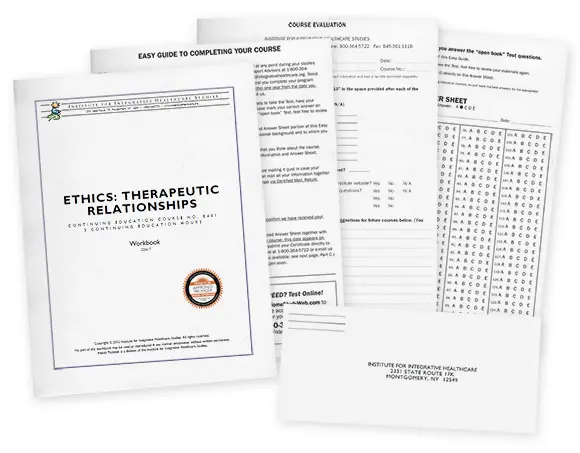
This ethics program will provide you with a structure for ethical decision-making that will serve your clients, yourself, your profession and your community. State licensing boards and professional associations set forth professional codes of ethics to define standards of professional conduct that ensure the highest good for the client in our therapeutic relationships. The first step in practicing ethically is to become aware of these established regulations and to implement them within your professional practice.
Ethics within the health care profession is concerned with the establishment and maintenance of moral relationships between those individuals coming in for treatment, on the one hand, and the professional therapists rendering treatment, on the other. Together our personal and professional codes of ethics form the basis for our standards of ethical decision-making and resulting conduct.
In this course you will:
Mingwen Lin, LMT
3/25/2025
Jacqueline Auburger, LMT, BCTMB
3/15/2025
Patricia A. Mattingly, LMT
3/10/2025
Samantha Bayless, LMT
3/10/2025
Jacqueline M. Susi
3/7/2025
No matter how long we're in practicing our techniques that involve people, especially people we get to know quite well, + see quite often, these ethics courses come as a refreshing reminder - thank you.

Original founder of the Institute for Integrative Healthcare Studies, Ralph graduated from The Swedish Institute, New York in 1981. A New York State Licensed Massage Therapist, Ralph was also the associate producer and host of the Holistic Health and Wellness and Natural Wellness programs in White Plains, NY, the creator of the Loving Pregnancy Massage video and author of the Healing Energy & Touch course manual.
Ralph has also authored and co-authored additional courses with the Institute including Developing a Wellness Center, Prenatal Massage Fundamentals, Infectious Disease: HIV/AIDS, Infectious Disease: Hepatitis, Medical Errors, Ethics: Therapeutic Relationships, Advanced Anatomy & Physiology, Deep Vein Thrombosis and Ethics: Practice Management.


Take our free online course: Ethics Refresher
We will not rent/sell your email to anyone.
You'll also receive our newsletter and special offers.
Thank you! An email will be sent to the address provided with instructions on how to enroll in this 1 CE hour course - FREE!
If you do not see our email within a few minutes of signing up, please check your Spam/Junk folders it may have been delivered there instead of your inbox.
If, by chance, you still have not received it within 5 minutes, please call us at 1-800-364-5722, Monday-Friday, between 9am-12:30pm and 1:30pm-5pm EST for assistance.